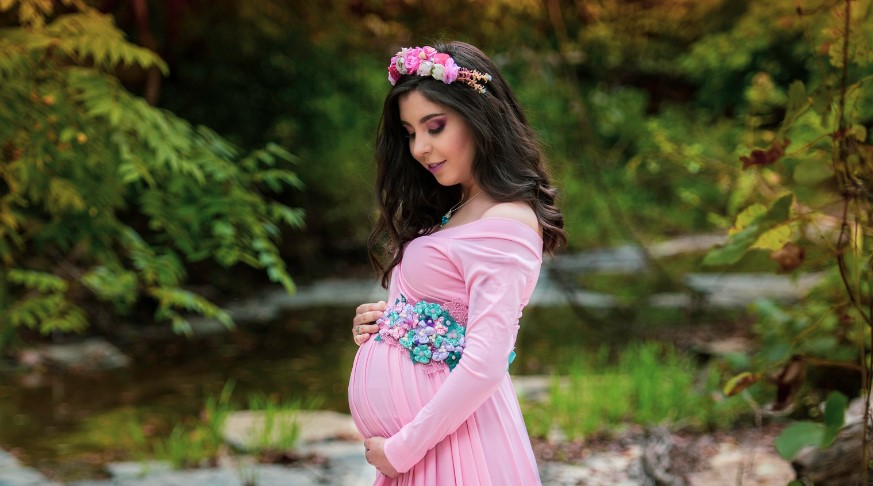If you are a working woman, chances are that your job comes with a lot of responsibility. You need to balance work and family commitments well. That is why many women look for ways to take maternity leave. However, not all countries have maternity leave policies in place, which means some women are unable to do so. Luckily, most countries offer maternity exemption certificates to help working women get time off while pregnant. If you’re planning on taking maternity leave or just need a certificate stating that you are eligible for it, this blog is for you! We’ll tell you everything you need to know about maternity exemption certificates, how to apply for one, and the benefits of having one.
What is the Maternity Exemption Certificate?

A Maternity Exemption Certificate is a government-issued certification that entitles expecting or new mothers in the UK to free NHS prescriptions, dental treatment, and free eyesight tests for one year from the date of the baby’s due date or date of birth. The certificate is valid for 12 months after the birth of a live or registered stillborn child. Midwives or NHS hospital doctors can provide pregnant women or new mothers an application form for the certificate, which the Practitioner Services Exemptions Department must process. The certificate will be sent by post upon approval. Mothers with temporary UK visas may have to pay an immigration health surcharge based on their immigration status to access NHS health services.
How to Get a Maternity Exemption Certificate?

If you are pregnant or think you may be, you should speak to your midwife, doctor or health visitor about getting a maternity medical exemption certificate. This free certificate entitles you to free NHS dental treatment, free prescriptions and free NHS sight tests. You can also get help with the cost of travel to see your midwife or doctor for ante-natal care.
Who Can Apply for a Maternity Exemption Certificate?

A maternity exemption certificate is a hugely beneficial certificate for pregnant women in the UK. It entitles them to free NHS prescriptions for 12 months after giving birth to a live or stillborn child. To qualify for a MatEx certificate, the applicant must be pregnant or have given birth in the past 12 months. The certificate can be extended, and the holder may have to pay an immigration health surcharge depending on their status in the UK. To apply for the certificate, one must complete the form and have a healthcare professional verify that the information is true. The certificate starts from the expected due date, so it’s best to apply as soon as possible. Applicants can visit the NHS Business Services Authority website for more information on how to apply for this certificate.
Does a Maternity Exemption Certificate Expire?

If you’re pregnant, you may be wondering if your maternity exemption certificate expires. The answer is yes; it does expire 12 months after either your due date or the birth of your baby, whichever comes first. After that, you’ll need to get a new certificate from your doctor.
So if you’re nearing the end of your pregnancy and haven’t yet gotten a new certificate, be sure to do so before your baby arrives. That way, you’ll be all set for when your little one arrives and won’t have to worry about getting a new one right away.
Benefits of Using a Maternity Exemption Certificate

There are a number of benefits of using a maternity exemption certificate, including the ability to take leave for medical needs that arise during pregnancy and after giving birth. This helpful tool can be used for any necessary medical care and treatment, including prenatal examinations, ultrasounds, tests, and immunizations.
Another benefit of a maternity exemption certificate is the ability to take time off for bonding with your baby. This may include time spent with your baby in a nursery or at home. A maternity exemption certificate can also be used to take time off for emotional needs, such as adjusting to life post-birth or grief related to your loss.
Overall, using a maternity exemption certificate can help you take the time you need to recover from childbirth and bond with your new baby.
How to Renew Your Maternity Exemption Certificate?

You may be entitled to free NHS dental treatment if you’re pregnant or have recently had a baby. You can apply for a new Maternity Exemption Certificate (MEC) by speaking to your GP or doctor.
To apply for a MEC, you’ll need to fill in a form and provide proof of your pregnancy, such as a maternity certificate. You can get the form from your GP surgery, pharmacist, midwife or health visitor.
Once you’ve got your MEC, you can use it to get free NHS dental treatment until your baby is one year old. You’ll need to show your MEC at each appointment.
Conclusion
The Maternity Exemption Certificate is a great way for pregnant women to access free NHS prescriptions and dental treatment. This certificate can help reduce the financial burden of medical care during pregnancy, allowing expecting mothers to focus on their health and well-being. If you are pregnant in England or Wales, make sure you take advantage of this valuable service by applying for your Maternity Exemption Certificate today!









Leave feedback about this